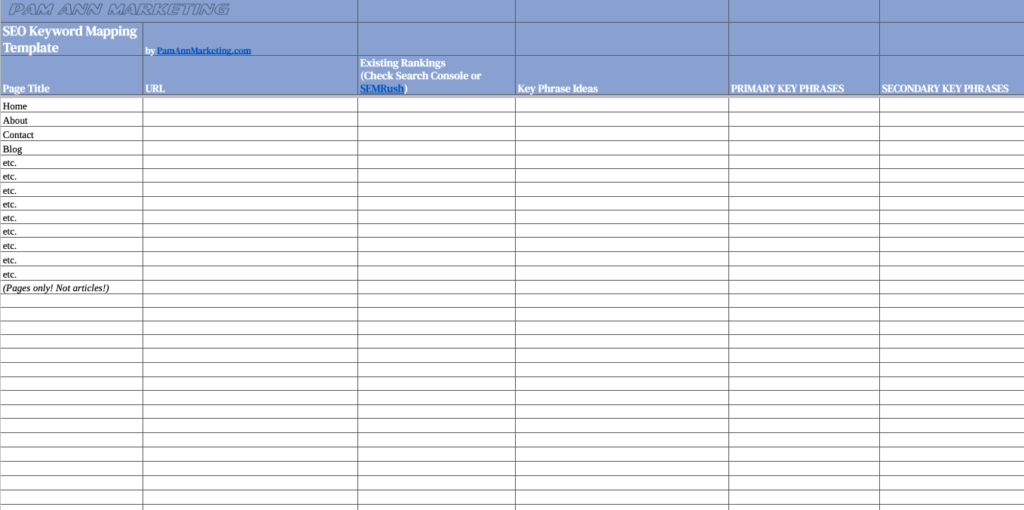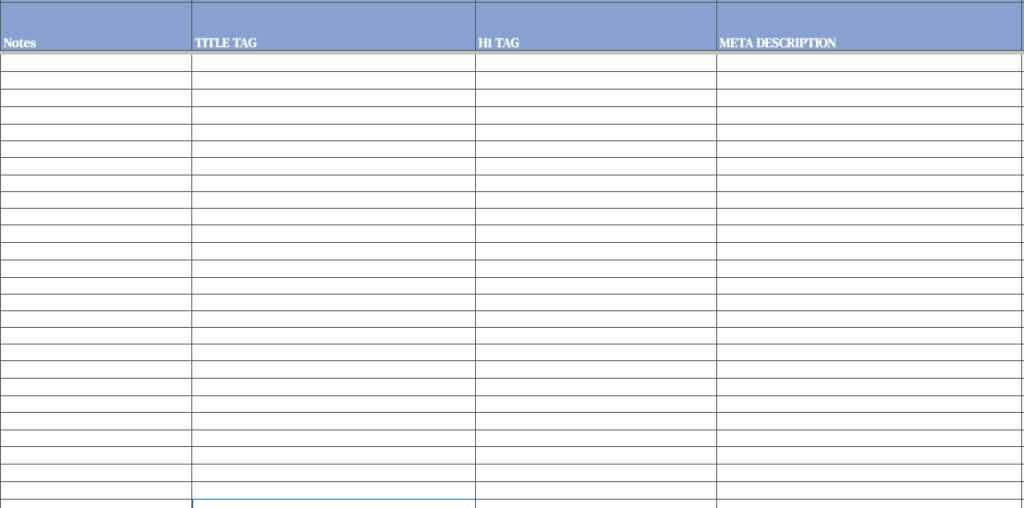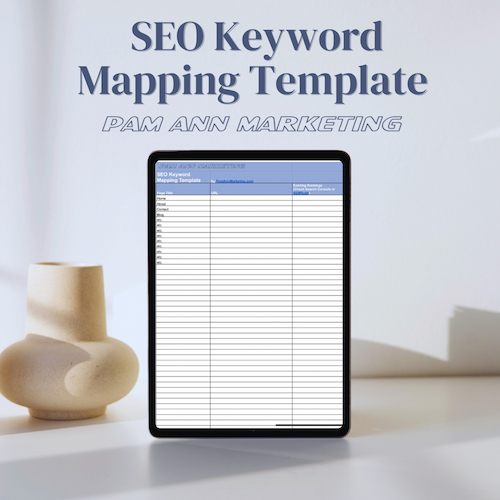What is Keyword Mapping?
Keyword Mapping is an SEO practice where keywords are strategically organized into groups and “mapped” (assigned) to certain pages on a website. It involves researching keywords, grouping them by topic and intent, assigning primary and secondary key phrases to each page, and preparing meta tag content for each page. It also provides a basis for tracking the desired keyword ranking performance for each page.
What is an SEO Keyword Mapping Template?
A keyword mapping template is an SEO spreadsheet used to “map” keyphrases to pages on a website.

Note: This is different from an SEO Blogging Schedule Template, as it focuses only on your site’s static core pages.
Why is a Keyword Mapping Template Beneficial?
A keyword mapping template is an essential strategic component of any SEO effort.
- Visualization: Helps visualize and optimize website structure and content
- Organization: Keeps your content optimization efforts organized
- Collaboration: Can be shared with others among your team or outside vendors such as copywriters
- Efficiency: Saves time by providing a streamlined workflow for the keyword mapping process
- Avoids Keyword Cannibalization: Helps ensure that your pages do not compete with each other in search results (also known as “keyword cannibalization”)
- Tracking Results: You can periodically return to the spreadsheet after implementation to assess keyword performance for each page, and reassess the selected keywords if needed

Note: For best results, use our Copywriting Optimization Guidelines when adding your keywords to your content!
What are the Key Components of a Keyword Mapping Template?
Our keyword mapping template has columns for:
- Page Name: Short nickname for the page, i.e. “Home”, “About”, etc.
- Page URL: The URL of the page to be optimized
- Existing Keyword Rankings: What keywords the page is already ranking for (if an existing page) with their current position and search volume
- Keyword Ideas: Possible keywords for the page, with information about search volume (SV) and keyword difficulty (KD)
- Primary Keywords: Your finalized selections for primary key phrases to be used on the page
- Secondary Keywords: A list of possible secondary key phrases to be used on the page. This can also include question phrases and subheadings.
- Title Tag: Your draft for the SEO Title Tag (how you’ll word it to include the primary key phrases)
- H1 Tag: Your draft for the H1 tag (how you’ll word it to include the primary key phrases)
- Meta Description: Your draft for the meta description for the page (containing primary and perhaps secondary key phrases)
- Notes/Comments: Anything that should be kept in mind when planning the content for the page, for example, notes about the search intent of the keywords selected for the page or the priority for getting it written (or rewritten).
Need Help With Your SEO Keyword Mapping?
Need help filling this out? Check out our Professional SEO Services or our SEO Training offering.
Download Instantly for Free!
This SEO Keyword Mapping Template is a key component of any successful SEO strategy. Download it right now for free! It’s in Google Sheet format, but you can download it from there as an Excel file if desired.

- Google is Helping U.S. Government Sites Advertise the Sale of Illegal Drugs - October 16, 2024
- Google Has Been Ruled a Monopoly in Antitrust Lawsuit (Video) - August 9, 2024
- New Domain or Subdomain? Which is Better for SEO? - October 13, 2023
